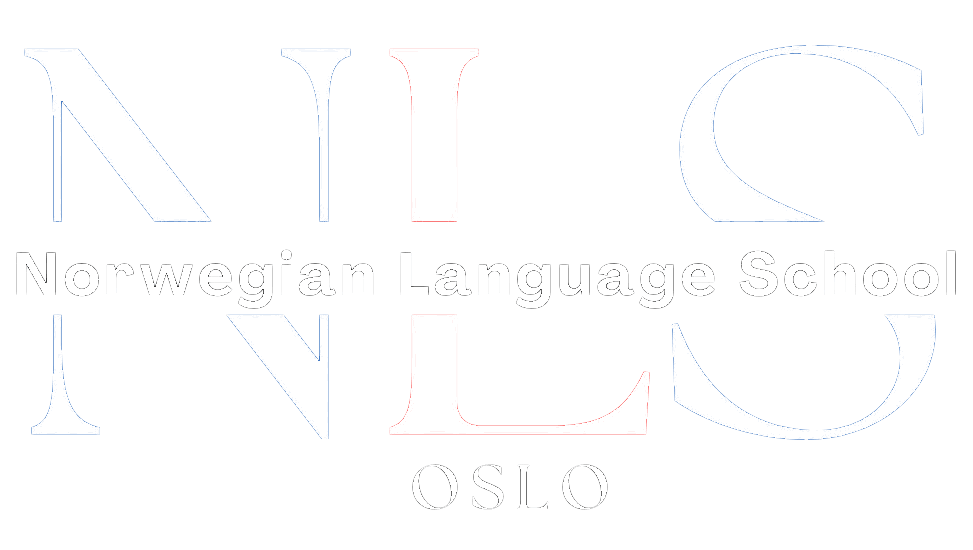

Automotive Spanish: Vocabulary for Car Aficionados
Learning Spanish vocabulary is important for car enthusiasts for several reasons. First, it allows them to communicate effectively with Spanish-speaking mechanics, car dealers, and other car enthusiasts. Second, it enhances their overall understanding and appreciation of cars and the automotive industry. Finally, it opens up opportunities to connect with a wider community of car enthusiasts around the world.
Automotive Spanish vocabulary can be divided into several areas. These include basic car parts and terminology, types of cars and their features, car maintenance and repairs, car accessories and upgrades, car brands and models, car dealerships and sales terminology, car insurance and claims vocabulary, and car racing and motorsports terms. Each of these areas has its own unique set of vocabulary words and phrases that are essential for any car enthusiast to know.
Table of Contents
ToggleBasic Car Parts and Terminology
To effectively communicate about cars in Spanish, it is important to have a good understanding of basic car parts and their functions. Some common car parts include the engine (motor), transmission (transmisión), brakes (frenos), tires (neumáticos), and steering wheel (volante). Understanding the functions of these parts is crucial for discussing car maintenance and repairs.
In addition to basic car parts, there are also specific terms related to car maintenance and repairs that are important to know. For example, an oil change is called “cambio de aceite” in Spanish, while a tire rotation is called “rotación de neumáticos.” Other important terms include “filtro de aire” (air filter), “batería” (battery), “freno de mano” (handbrake), and “suspensión” (suspension).
Types of Cars and Their Features
When discussing different types of cars in Spanish, it is important to know the vocabulary for each type. For example, a sedan is called “sedán,” an SUV is called “todoterreno” or “camioneta,” and a sports car is called “coche deportivo” or “deportivo.” Understanding these terms allows car enthusiasts to accurately describe the type of car they are talking about.
In addition to types of cars, there are also specific terms related to car features that are important to know. For example, engine size is referred to as “cilindrada,” horsepower is referred to as “caballos de fuerza,” and fuel efficiency is referred to as “eficiencia de combustible.” These terms allow car enthusiasts to discuss the performance and features of different cars.
Car Maintenance and Repairs
Car maintenance and repairs are an important part of owning a car, and it is essential for car enthusiasts to know the vocabulary related to these tasks. Some common car maintenance tasks include an oil change (cambio de aceite), tire rotation (rotación de neumáticos), and brake inspection (inspección de frenos). Knowing these terms allows car enthusiasts to effectively communicate with mechanics and understand what needs to be done to keep their cars in good condition.
In addition to maintenance tasks, there are also specific terms related to car repairs that are important to know. For example, brake pads are called “pastillas de freno,” transmission is called “transmisión,” and spark plugs are called “bujías.” Understanding these terms allows car enthusiasts to discuss repairs with mechanics and have a better understanding of what is being done to their cars.
Car Accessories and Upgrades
Car accessories and upgrades can enhance the driving experience and make a car more personalized. It is important for car enthusiasts to know the vocabulary related to these accessories and upgrades. Some common car accessories include a GPS (sistema de navegación), sound system (sistema de sonido), and roof rack (portaequipajes). Knowing these terms allows car enthusiasts to effectively communicate their preferences and desires when it comes to accessorizing their cars.
In addition to accessories, there are also specific terms related to car upgrades that are important to know. For example, a turbocharger is called “turbo,” a performance exhaust is called “escape deportivo,” and upgraded suspension is called “suspensión mejorada.” Understanding these terms allows car enthusiasts to discuss upgrades with mechanics and have a better understanding of the options available to them.
Car Brands and Models

Car enthusiasts often have their favorite car brands and models, and it is important to know the vocabulary related to these brands and models. Some popular car brands include Toyota, Ford, Chevrolet, and Volkswagen. Knowing these brand names allows car enthusiasts to effectively communicate their preferences and discuss different models within each brand.
In addition to brand names, there are also specific terms related to different car models that are important to know. For example, the Toyota Camry is called “Camry,” the Ford Mustang is called “Mustang,” and the Chevrolet Corvette is called “Corvette.” Understanding these model names allows car enthusiasts to accurately discuss different models within each brand.
Car Dealerships and Sales Terminology
When buying a car, it is important to know the vocabulary related to car dealerships and sales. Some common terms include salesperson (vendedor), showroom (sala de exposición), and test drive (prueba de manejo). Knowing these terms allows car enthusiasts to effectively communicate with salespeople and navigate the car buying process.
In addition to general sales terminology, there are also specific terms related to financing and leasing that are important to know. For example, financing is referred to as “financiamiento” or “crédito,” leasing is referred to as “arrendamiento,” and down payment is referred to as “enganche.” Understanding these terms allows car enthusiasts to have a better understanding of the financial aspects of buying a car.
Car Insurance and Claims Vocabulary
Car insurance is an important aspect of owning a car, and it is important to know the vocabulary related to car insurance and claims. Some common terms include premium (prima), deductible (deducible), and coverage (cobertura). Knowing these terms allows car enthusiasts to effectively communicate with insurance agents and understand their insurance policies.
In addition to general insurance terminology, there are also specific terms related to car insurance claims that are important to know. For example, collision is referred to as “colisión,” comprehensive is referred to as “amplia,” and liability is referred to as “responsabilidad civil.” Understanding these terms allows car enthusiasts to have a better understanding of the claims process and what is covered by their insurance policies.
Car Racing and Motorsports Terms
For car enthusiasts who are also fans of car racing and motorsports, it is important to know the vocabulary related to these sports. Some common terms include lap (vuelta), pit stop (parada en boxes), and checkered flag (bandera a cuadros). Knowing these terms allows car enthusiasts to effectively communicate with other fans and understand the terminology used in races.
In addition to general racing terminology, there are also specific terms related to different types of motorsports that are important to know. For example, NASCAR is referred to as “NASCAR,” Formula One is referred to as “Fórmula Uno,” and rally racing is referred to as “rally.” Understanding these terms allows car enthusiasts to have a better understanding of the different types of motorsports and the rules associated with each.
Spanish Classes and Courses for Car Aficionados
For car enthusiasts who want to improve their Spanish vocabulary, there are several options available. Many language schools offer Spanish classes specifically designed for car enthusiasts, where they can learn the vocabulary and practice their skills in a car-related context. There are also online resources and courses that provide lessons and exercises focused on automotive Spanish vocabulary.
Some recommended online resources for learning automotive Spanish vocabulary include websites such as FluentU, SpanishDict, and Duolingo. These websites offer a variety of lessons, quizzes, and interactive exercises that can help car enthusiasts improve their Spanish skills. Additionally, there are also online courses available through platforms such as Udemy and Coursera that offer more in-depth lessons on automotive Spanish vocabulary.
Learning automotive Spanish vocabulary is important for car enthusiasts for several reasons. It allows them to effectively communicate with Spanish-speaking mechanics, car dealers, and other car enthusiasts. It enhances their overall understanding and appreciation of cars and the automotive industry. And it opens up opportunities to connect with a wider community of car enthusiasts around the world.
By knowing the vocabulary related to basic car parts and terminology, types of cars and their features, car maintenance and repairs, car accessories and upgrades, car brands and models, car dealerships and sales terminology, car insurance and claims vocabulary, and car racing and motorsports terms, car enthusiasts can have more meaningful conversations about cars in Spanish.
There are several options available for car enthusiasts who want to improve their Spanish vocabulary. They can take Spanish classes specifically designed for car enthusiasts, use online resources and courses, or practice their skills in real-life situations. The key is to continue learning and practicing the vocabulary in order to become more fluent in automotive Spanish.
FAQs
What is Automotive Spanish?
Automotive Spanish refers to the vocabulary and terminology used in the automotive industry in Spanish-speaking countries.
Why is it important to learn Automotive Spanish?
Learning Automotive Spanish can be beneficial for car enthusiasts, mechanics, and anyone working in the automotive industry. It can help improve communication and understanding when dealing with Spanish-speaking customers or colleagues.
What are some common Automotive Spanish terms?
Some common Automotive Spanish terms include: motor (engine), llantas (tires), frenos (brakes), aceite (oil), batería (battery), and transmisión (transmission).
Are there any differences between Automotive Spanish and regular Spanish?
Yes, there are some differences between Automotive Spanish and regular Spanish. Automotive Spanish includes specific vocabulary and terminology related to the automotive industry that may not be used in everyday conversation.
Where can I learn Automotive Spanish?
There are many resources available for learning Automotive Spanish, including online courses, textbooks, and language schools. It may also be helpful to practice speaking with native Spanish speakers who work in the automotive industry.
If you want to learn Spanish, you can register for classes here. We look forward to hearing from you and helping you become fluent in Spanish!
If you want to learn Norwegian, you can register for classes here. We look forward to hearing from you and helping you become fluent in Norwegian.






